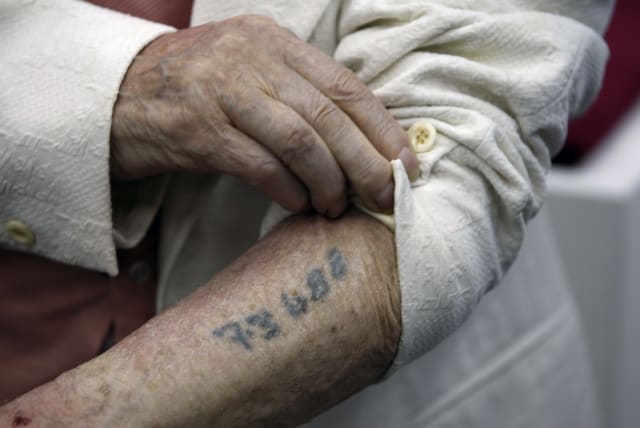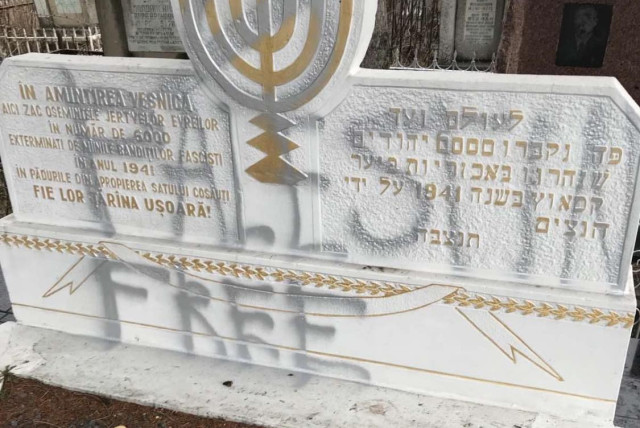'Who has energy for Holocaust Remembrance Day?': Crisis fatigued Israelis amid ongoing tragedy

When Zikaron BaSalon, a grassroots initiative in which individual Holocaust survivors address small groups, opened up registration for participants, sign-up was very low.
Since October 7, Israelis have been inundated with stories of the horrors and heroism people experienced on that day and during the ensuing war with Hamas.
It’s hard to turn on the television, read a paper, or scroll social media without encountering a jarring account of the atrocities committed by Hamas, a heartbreaking memorial to a fallen soldier, or an angry lament of the current situation and the lack of hope many Israelis feel for a better future.
Given this reality, which has been ongoing for months, it is no wonder that many are unwilling or unable to muster the strength to commemorate Holocaust Remembrance Day. To many, the idea of opening up to more suffering and making space for more terrible memories seems absurd.
When Zikaron BaSalon (Remembrance in the Living Room), a grassroots initiative in which individual Holocaust survivors address small groups, opened up registration for participants this year, the sign-up was very low.
A society overwhelmed by tragedy, mourning
“We asked ourselves and former participants why,” said Moran Zipper Goldenberg, co-CEO of Zikaron BaSalon.
“They told us, ‘Who has energy for Yom Hashoah this year? Our society is in mourning, hurting so much,’” she said. That led the initiative to create a special campaign to reflect the Israeli tragedy fatigue, putting up ads that ask, “Who has the energy for Holocaust Day this year?”
The answer given by the organization is that Holocaust Remembrance Day in 2024 is “more important than ever because of the hope and strength that can be found in the stories of survivors.”
When the war broke out, Zikaron BaSalon set up a command center to help Holocaust survivors and quickly learned that it wasn’t just the survivors who were benefiting.
“Suddenly, our volunteers were telling us how strengthened they felt by meeting the Holocaust survivors,” said Goldenberg.
“Many of [the survivors] told [volunteers], ‘We rose then; we will rise today as well. If we managed then – when we did not have a country or an army, to come and found a country and to manage to develop careers and make families and set up the entire Israeli society – of course, this time we will also manage to rise.’
“That is when we understood something very important. On Holocaust Remembrance Day this year, we want to give hope and inspiration through the stories of Holocaust survivors and their families who come to the living rooms, to gain strength from them, and to learn from them how to get up from the deepest depths.”
The Holocaust survivors also offered interesting perspectives on how they are approaching Holocaust Remembrance Day this year. For many, the harsh images of October 7 flooded them with the trauma of past experiences.
Goldenberg shared the story of a Holocaust survivor who lives on Kibbutz Sa’ad who said that just knowing that the IDF was coming to help and being able to pray and wait for them made all the difference. For her, October 7 was not another Holocaust.
Other survivors disagreed and described the day of the Hamas attack as a “black hole” in history, where they didn’t feel the impact of the IDF or the country. Some say October 7 was a “greeting” from the history of the Holocaust.
Soon after October 7, many survivors told Zikaron BaSalon that they did not want to participate in the events this year, feeling that there were new survivors now and that these are the stories that should be told. Goldenberg said that in the ensuing months, these survivors have changed their minds. They understand the value of sharing their experiences, especially now.
Zikaron BaSalon will hold tailor-made meetings for various groups impacted by the October 7 massacre and the current war. For survivors of the massacre at the Nova music festival, the meeting will focus less on the Holocaust and more on how to rise from the ashes.
“Nova survivors prepared questions about how to recover: What helped you handle the difficulty over time? How do you deal with the bad dreams? How do you return to believing in people?
“Holocaust survivors will share their experiences and give them the hope and the strength to learn how to continue,” explained Goldenberg.
A special meeting for the hostages’ families will focus on handling the longtime uncertainty and difficulty.
“The war is not over, and we still have people who are in Hamas captivity, but I hope we will start thinking about how we want to prepare for the day after,” said Goldenberg.
She added that we should consider what a “moral revival” looks like. “In some sense, we have become, against our will, a generation of founders that will need to rise and rebuild here.”
Greer Fay Cashman contributed to this report.
Jerusalem Post Store
`; document.getElementById("linkPremium").innerHTML = cont; var divWithLink = document.getElementById("premium-link"); if (divWithLink !== null && divWithLink !== 'undefined') { divWithLink.style.border = "solid 1px #cb0f3e"; divWithLink.style.textAlign = "center"; divWithLink.style.marginBottom = "15px"; divWithLink.style.marginTop = "15px"; divWithLink.style.width = "100%"; divWithLink.style.backgroundColor = "#122952"; divWithLink.style.color = "#ffffff"; divWithLink.style.lineHeight = "1.5"; } } (function (v, i) { });

